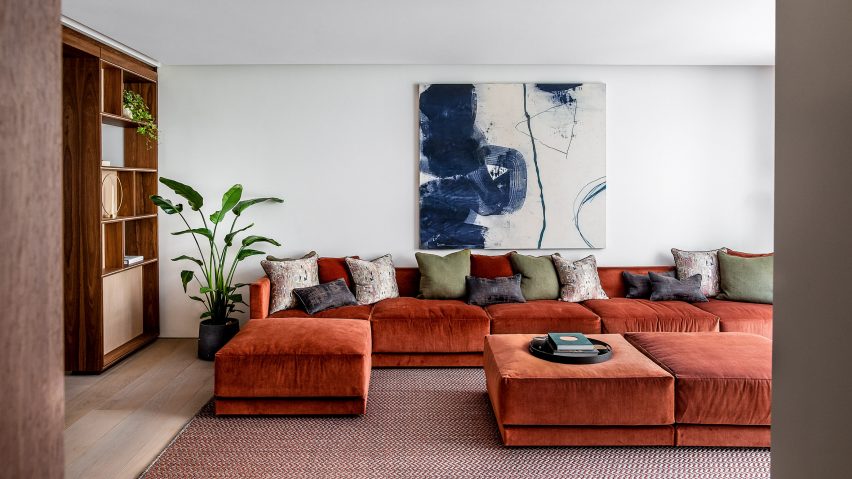
Echlin uses broken-plan layout to create spacious interiors within London mews house
A nearly six-metre-high green wall and a basement floor with a walk-on skylight are among the additions made by design and development firm Echlin to this remodelled mews house in Knightsbridge.
The resulting design is described by the local firm as a "reinterpretation" of a classic London mews house, with plenty of useable and flexible space, an abundance of natural light and a strong connection to nature.
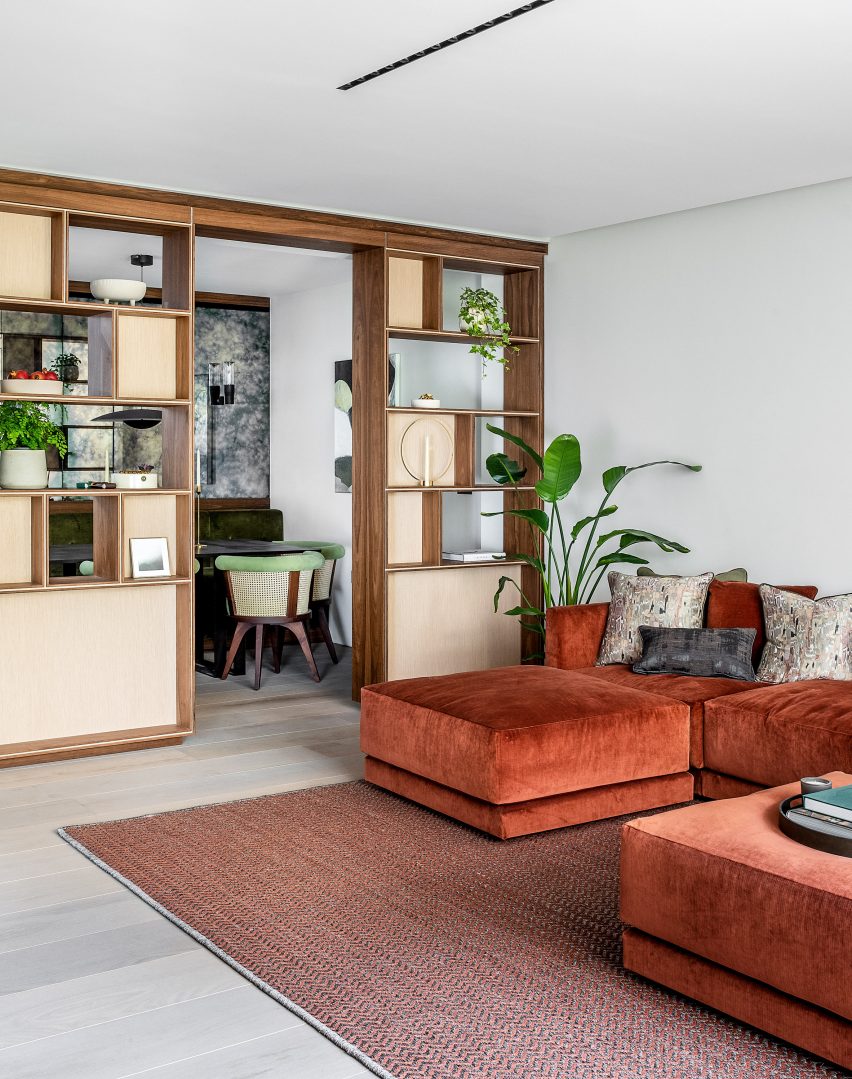
Located on a quiet mews in easy reach of Hyde Park, the 225-square-metre family home is arranged across three floors and connected by a helical oak staircase, which was handmade in East Sussex.
Entered through an oversized bronze door, the ground floor features an entrance hall cast in grey Pietra marble. This is separated from a generous living space, dining area and study via a sliding partition wall.
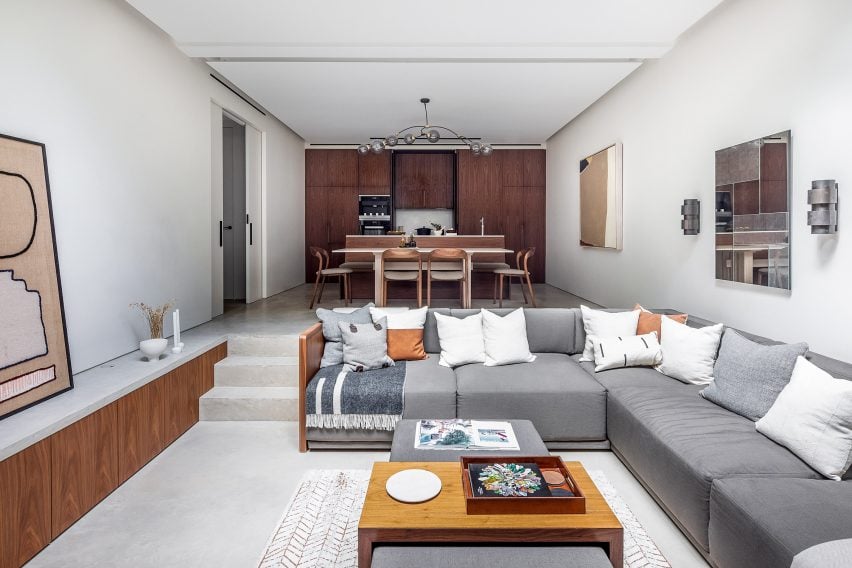
The newly created basement level accommodates a large, split-level kitchen and living area while the first floor is occupied by three bedrooms, each with its own en-suite bathroom.
A 5.5-metre-high living wall stretches between the lower ground and ground floors.
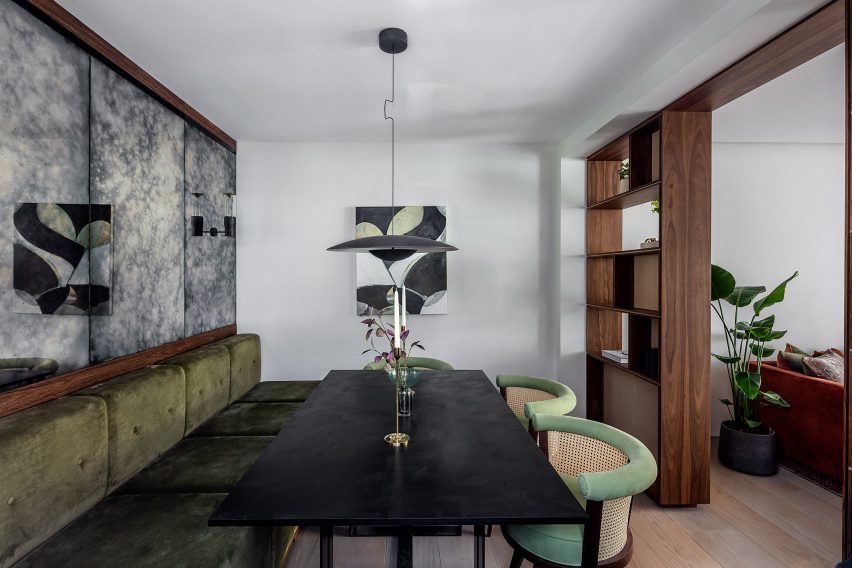
Each floor follows a "broken-plan" layout, in which built-in furniture and level changes help to loosely demarcate different areas.
"The vision was to transform a small mews with compromised rooms into a contemporary home with a great feeling of space," explained Steve Clinch, Head Architect at Echlin. "This has been achieved by opening up the plan and providing views into other spaces, allowing the full width and length of the house to be experienced."
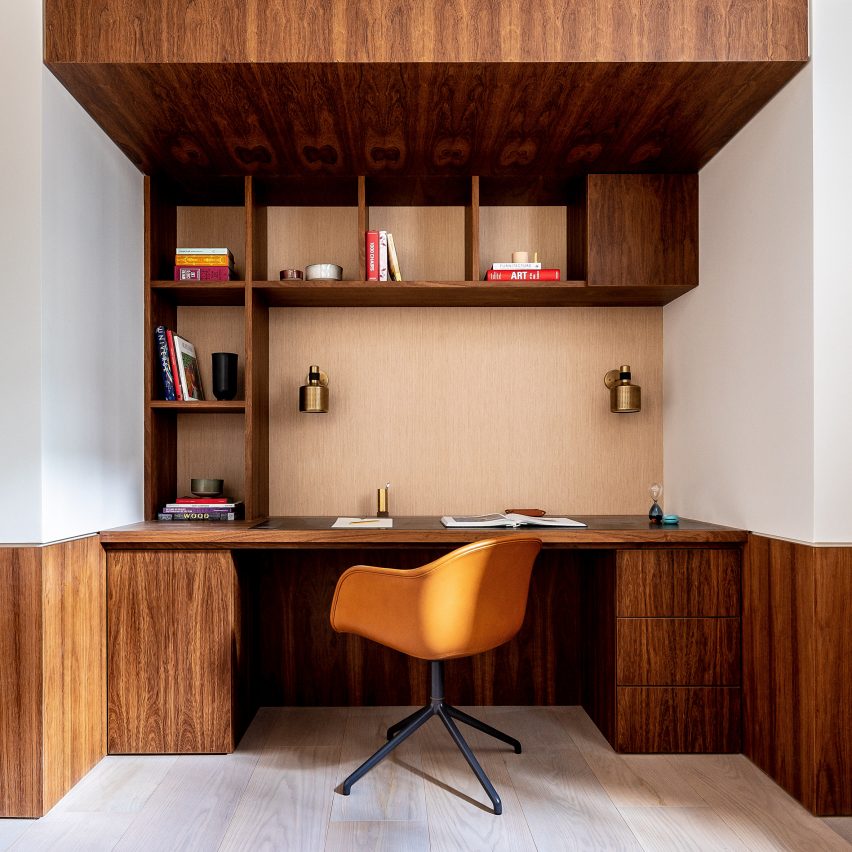
Wide, sliding and pocket doors create views through the different spaces, as does bespoke joinery such as the open shelving that divides the dining, study and living areas on the first floor.
On the lower ground floor, which was added in by the firm, a sunken seating area is located beyond the kitchen and dining area. The level change is intended to create a visual separation while allowing the spaces to remain connected to each other.
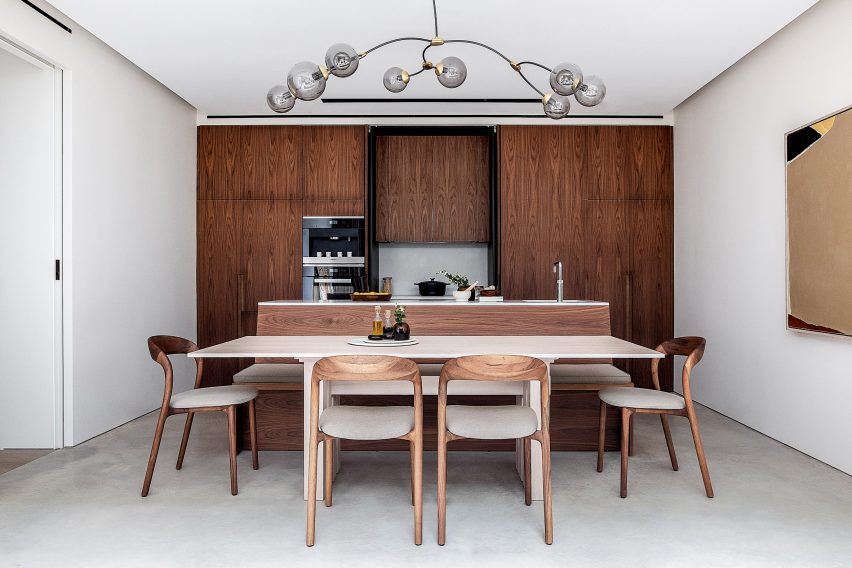
The walnut kitchen has been designed by Echlin so that all utilities can be concealed behind pivoting pocket doors when the owners are entertaining.
A walk-on skylight on the ground floor terrace is located directly above the sunken seating area to maximise the amount of daylight in the basement. This is also helped by the fully-retractable, floor-to-ceiling glass door that leads out onto a small terrace and frames the view of the green wall.
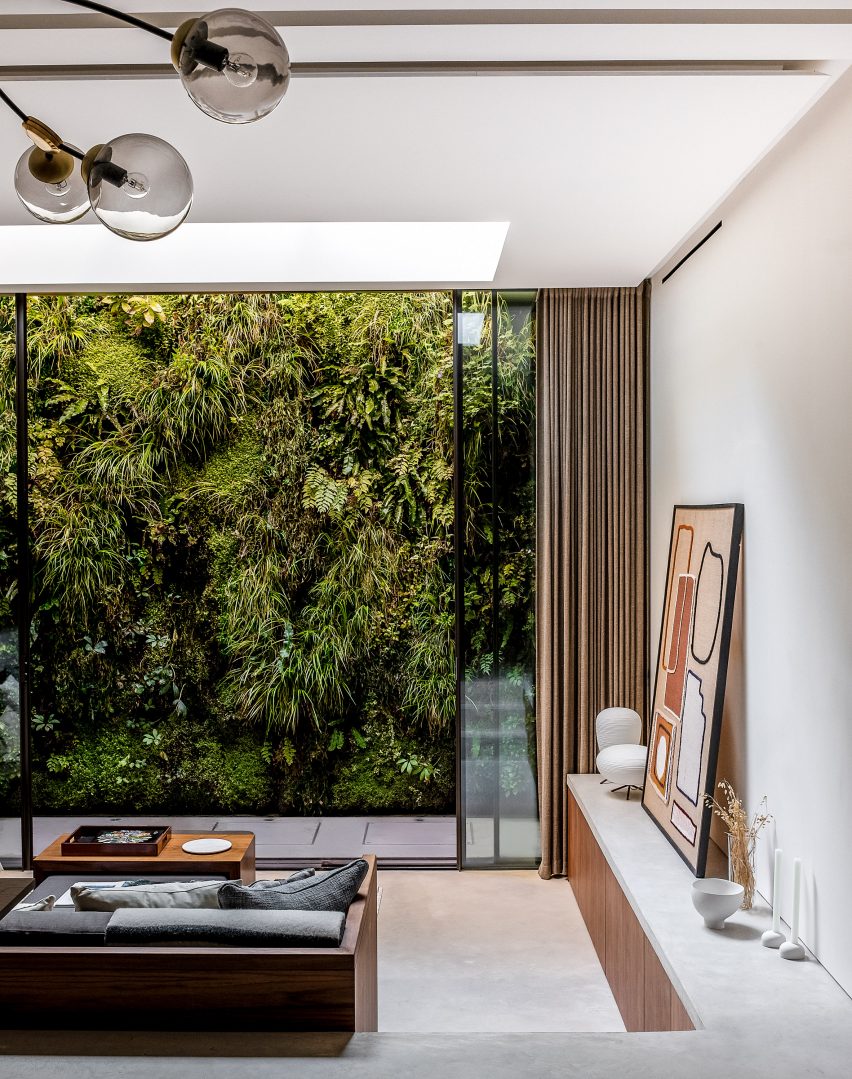
Three bedrooms are located on the first floor, where pitched ceilings create a feeling of spaciousness while skylights ensure the spaces get plenty of daylight.The sliding doors in the master bedroom create a visual connection all the way through from the dressing area into the en-suite.
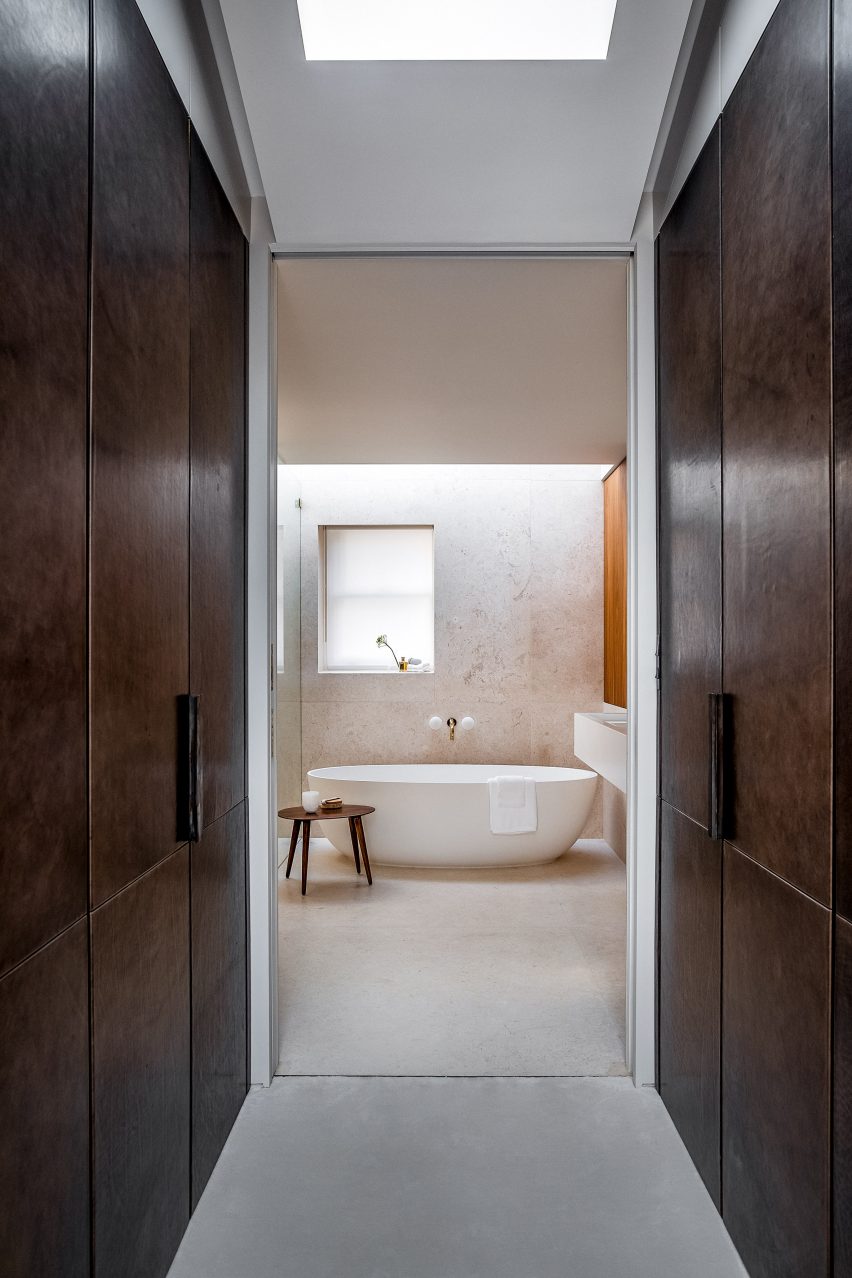
Much of the furniture in the house is designed by Echlin and made in collaboration with a network of skilled craftsmen. Bespoke pieces include the pale timber table on the lower ground floor, which was handmade in Brighton, while the sofas on the lower ground and ground floors come from Oxfordshire.
According to the studio, the home's "sense of calm and tranquillity" was created through the use of natural materials, organic textures and a gentle colour palette informed by the nearby park. Meanwhile, the use of metallic surfaces and heritage colours nod to the home's historic location.
"The current climate has placed an even greater emphasis of the importance of how our homes are designed, how we use them and its impact on our moods," said Sam McNally, who co-founded Echlin in 2011 with Mark O'Callaghan.
"We recognise that mood, wellbeing and happiness are all shaped by what surrounds us and we are committed to making these spaces as stylish but also as user-friendly as we can."
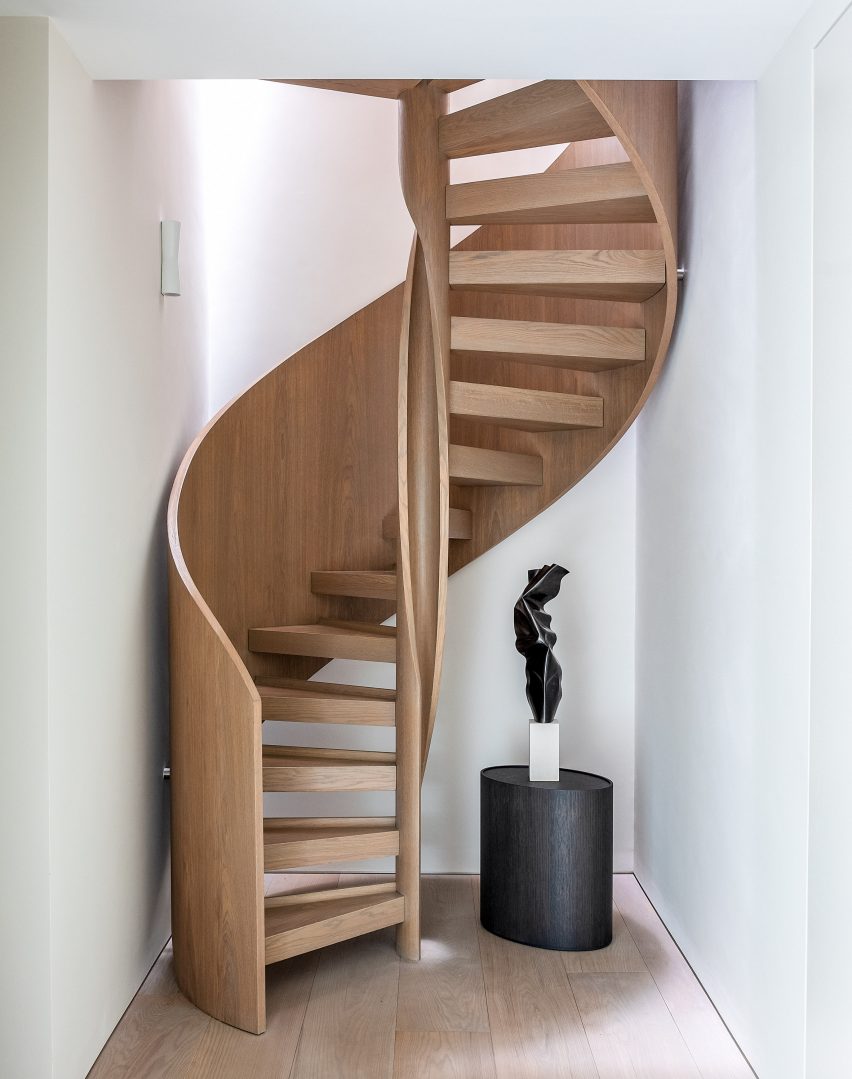
In a thought piece written for Dezeen last year, design writer and TV presenter Michelle Ogundehin outlined 11 ways in which the pandemic will impact the home.
As well as predicting a return to practical kitchens and more intimate room layouts, she believes there will be a desire for more human-centric homes, where natural materials are used to benefit the occupier's wellbeing.
Photography is by Taran Wilkhu.